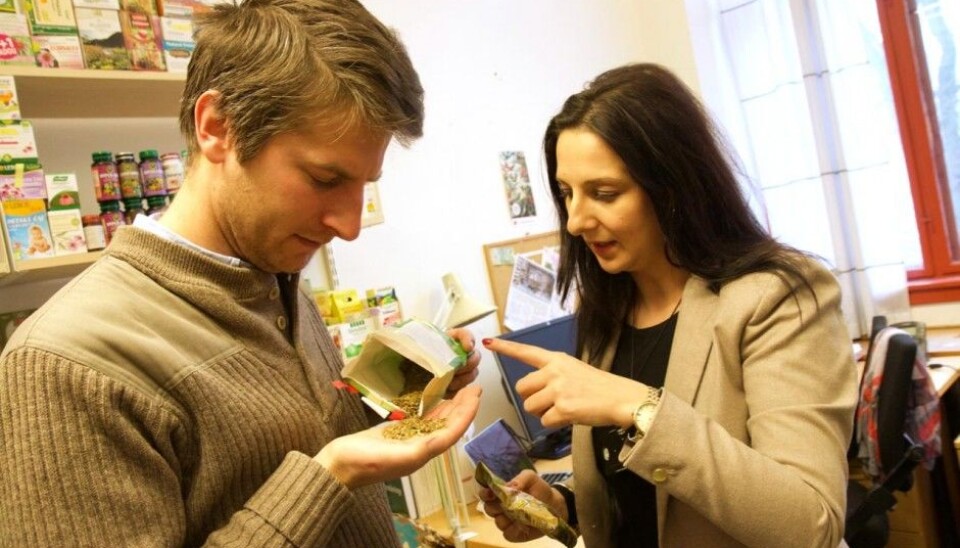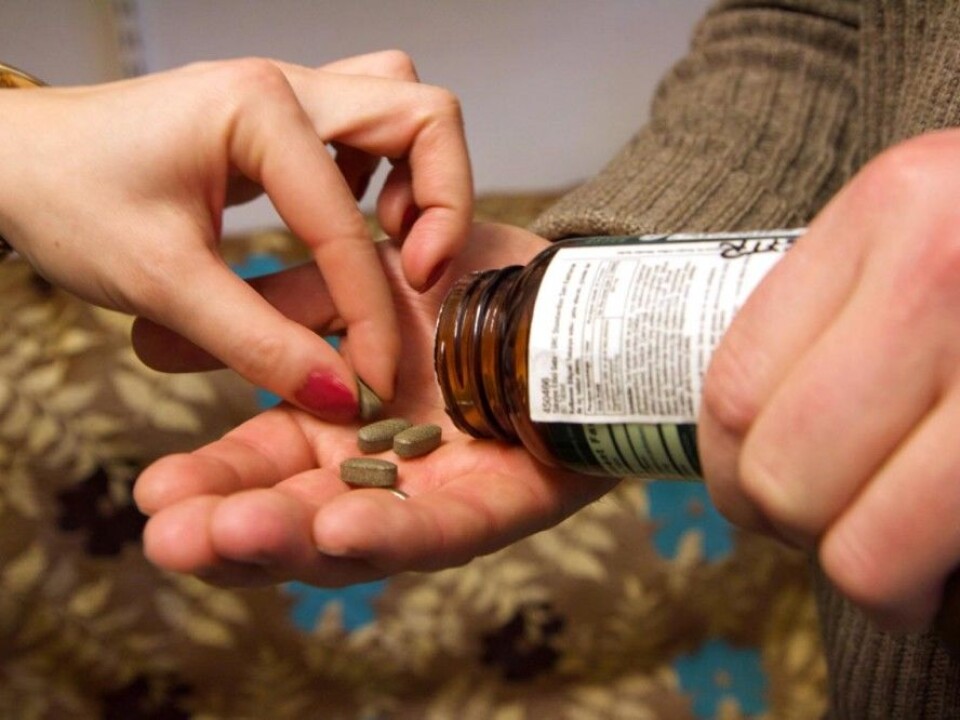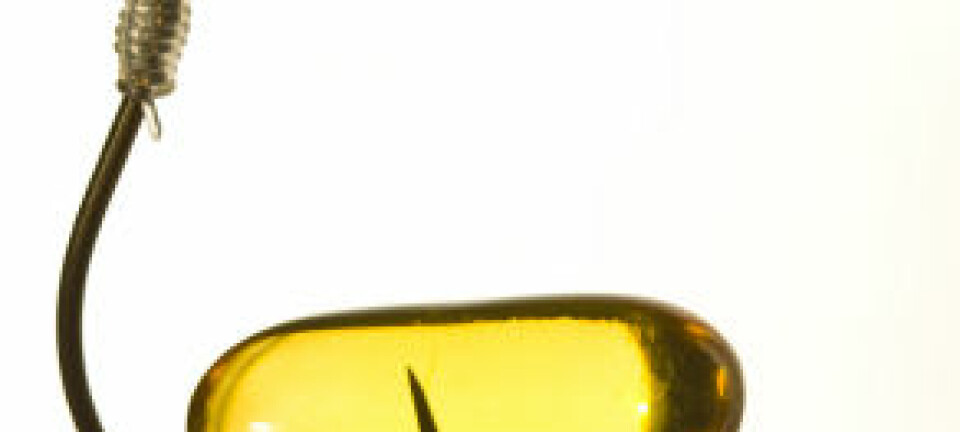
None of the herbal supplements were really as claimed
When scientist conducted DNA analyses of some dietary supplements allegedly containing St. John’s wort they found that none contained what their list of ingredients claimed.
St. John’s wort has been used medicinally for centuries. Traditionally the plant was considered to be an almost universal remedy for everything from infected wounds to melancholia. It is still used by many to treat mild to moderate depression.
Until two years ago, St. John’s wort was classified as a food supplement in Norway. Thus it could be bought without a prescription, mainly in health food stores. This is still the case in many countries.
But what do they really consist of, all the St. John’s wort products sold on the web and in many European health food stores?
Ancuta Cristina Raclariu and Hugo de Boer at the University of Oslo’s Natural History Museum have used a new type of DNA analysis – DNA barcoding – to check the contents of 78 different products from numerous countries.

They concluded that none of these contained what their labels claimed.
A third of the products actually had not an iota of St. John’s wort whatsoever. The rest either lacked other ingredients that were listed or they contained ingredients that were unlisted.
“This is not surprising,” comments Medical Director Steinar Madsen of the Norwegian Medicines Agency.
“We have seen before that there are gross errors or missing ingredients.”

Madsen considers it a welcome development that DNA barcoding can now be used to control the contents of herbal medicines.
Finally find out what’s in the pills
“It used to be hard to determine exactly what was in powders or pills being sold as herbal medications,” explains Raclariu.
Chemical tests could reveal how much the products contained of certain active ingredients, but not determine all the ingredients they were made of.
DNA barcoding enables authorities to find out which plants are present, for instance in a capsule or pill.
“There can be up to 30 different plant species,” says de Boer.
The researchers compare the DNA they find in the product with databases of the DNA of various species. This enables them to find which herbs are present, and also get matches on other cheap ingredients that are just filling up space, such as wheat or rice.
They can also detect whether a specific herb is lacking.
Trickery and errors
Raclariu and de Boer think there are a variety of reasons why there was so much wrong with the products they investigated. In some cases, the mistaken lists of contents might have been due to human error rather than intentional deceit.
St. John’s wort (Hypericum perforatum) for example, is a member of a family of plants that are quite similar but do not contain the same active ingredients. The suppliers might simply have picked the wrong plants.
“But in many cases this is probably intentional chicanery,” says de Boer.
“They add something that is cheaper.”
Madsen of the Norwegian Medicines Agency says that similar findings have been made with other herbal products for instance ones allegedly containing ginkgo.
“Someone has calculated that ten times more ginkgo is sold than is produced.”
“The producers make products of cheap plants but claim they are something else and sell them at a high price. This is just a matter of money and profits.”
Madsen stresses however, that those who buy St. John’s wort products legally in Norway have no need to be alarmed.
Regulated as a medicinal product in Norway
In Norway St. John’s wort is classified as a medicinal product. That means that St. John’s wort products have been verified and tested by the Norwegian Medicines Agency and can be sold in pharmacies.
There is a difference in Norway between medications and what are deemed simply to be dietary supplements. Medications or medicinal products are subjected to rigorous testing and controls by the authorities. Products bought at Norwegian pharmacies can be trusted.
Dietary supplements, on the other hand, a whole different bag of goods. In a sense, they can be sold outside of licensed pharmacies because of their lack of a proven medical value.
“The Norwegian Food Safety Authority takes regular sample tests to control for substances that should not be present. But there are thousands of such non-prescription remedies and supplement products and it is impossible to control them all.”
Raclariu explains that these remedies are not very well tested by other European health authorities either.
Found no dangerous plants
However, Raclariu and de Boer stress that their analyses have not indicated that any of the tested St. John’s wort remedies contained dangerous plants.
“The producers are careful not to add anything toxic,” says de Boer.
But many of the products probably had only little effect, if any at all. A third of them contained no St. John’s wort. And chemical analyses showed that the rest of the products contained fewer of the active ingredients in St.
John’s wort than consumers were being led to believe by the packaging.
“The regulatory and controlling authorities should be on the alert here,” says Raclariu.
“This is a pretty huge industry, selling expensive products that many trust. Our control systems ought to be improved now.”
Scepticism is smart
Raclariu and de Boer think that DNA barcoding can serve as a good tool in a more rigorous control system, even though the current methods are not infallible.
The databases of plant species can lack certain species. This can make scientists conclude that a product contains some species but what is there is just one that leaves a similar DNA print.
“We cannot be 100 percent sure,” says Raclariu.
Nor can the method determine all the substances in a pill. For instance the pill might contain purely chemical compounds which of course do not have any DNA.
In several earlier cases it has been shown that dietary supplements and herbal medicines have contained bona fide medicinal products, such as paracetamol or cortisone. This can be revealed by chemical analyses.
Medical Director Madsen says that consumers should be on the alert.
“Most of the natural healer products have no effect, or at least no strong effect. If a dietary supplement markets itself as having a big effect you should be sceptical,” asserts Madsen.
-------------------------------------
Read the Norwegian version of this article at forskning.no
Translated by: Glenn Ostling
































